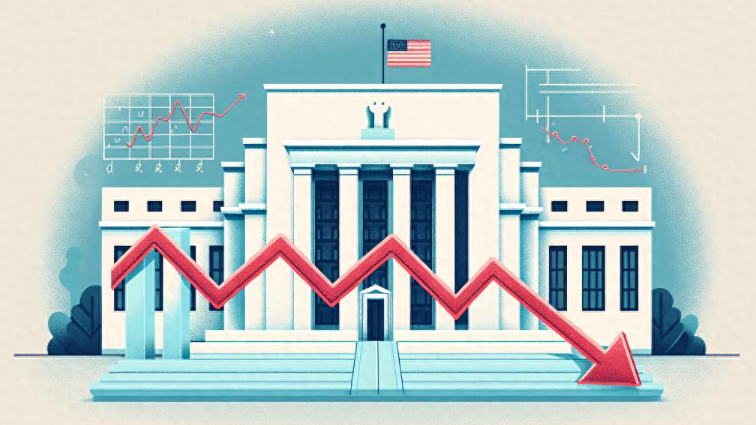The recent performance of the U.S. stock market has left investors feeling anxious, as a downturn unfolds across all major indices following a week of volatility. The Standard & Poor's 500, the Nasdaq Composite, and the Dow Jones Industrial Average have all faced significant declines. Investor sentiment has shifted to one of growing concern, especially with the upcoming release of the November Consumer Price Index (CPI). This key economic data has drawn the attention of market participants, who are eager to understand its implications for monetary policy.
On Tuesday, the stock market closed lower, with technology shares dragging down overall indices. This decline offset gains made by the communication services sector as investors awaited the crucial inflation report scheduled for Wednesday. Within the S&P 500, only three out of its eleven major industry sectors managed to finish the day in positive territory, indicating widespread weakness.
The anticipation surrounding the November CPI data marks it as the last significant report before the Federal Reserve's December 17-18 meeting. Current market projections indicate a slight uptick in overall inflation rates, with estimates suggesting an increase from 2.6% in October to approximately 2.7% in November. A subsequent Producer Price Index (PPI) report is also set to be released on Thursday. Mona Mahajan, a head of investment strategy, expressed confidence that the market is looking for data that would not throw the Federal Reserve off course during its next meeting. Should the CPI align with expectations, investors may anticipate a 25 basis points rate cut from the Federal Reserve next week.
The collective downturn on the stock market can be attributed to a combination of global economic slowdown concerns, domestic inflation worries, and the longer-term effects of these factors on the economy as a whole. On Tuesday, the S&P 500 witnessed a nearly 1.5% drop, while the Nasdaq slid close to 2%. The Dow experienced a smaller decline of 0.8%, yet still reflected a broader trend of retreat.

Investor anxiety has become palpable in recent months. The stock market has oscillated from a strong upward trajectory at the year's start to bouts of consolidation, eventually leading to the current downward trend. Factors such as persistent inflation and rate uncertainty have compounded these worries. As one prominent market analyst noted, such volatility in the U.S. stock market is hardly surprising. Investor sentiment has long been fragile, particularly when the trajectory of the Federal Reserve's policy remains unclear. The upcoming release of November's CPI data is poised to be a pivotal moment for the market.
The upcoming CPI report is a critical factor influencing the recent downturn in the stock market, as it serves as a vital measure of inflation. Given the ongoing inflationary pressures, the CPI figures hold substantial weight in guiding investor expectations regarding future monetary policy. Inflation levels in the U.S. remain stubbornly elevated, remaining above the Federal Reserve's target of 2%. Although inflation has retreated from peak levels seen in the previous year, essential goods such as food and energy continue to place upward pressure on prices. For illustration, energy prices saw a month-on-month increase of 2.6% in December 2024, with gasoline surging 4.4%. Additionally, food prices also ticked up by 0.3% in the same timeframe. These developments have not only contributed to rising living costs but have also increased uncertainty regarding future price trends.
Projections suggest that the November CPI is likely to reflect continued moderate inflationary pressures, leading the Federal Reserve to adopt a more cautious approach regarding interest rate decisions. Changes in liquidity expectations in the market may prompt adjustments in preferences for risk assets. Consequently, this could result in shifts in investors' risk appetite and asset allocation strategies.
Thus, the impending November CPI data serves as a crucial barometer for financial markets. The outcomes of this report will significantly influence the Federal Reserve's decisions, subsequently impacting the fate of the stock market. Should the CPI indicate persistent high levels of inflation, this would suggest that inflationary pressures have not effectively subsided. In response, the Federal Reserve might opt to maintain or even increase interest rates, further elevating the cost of borrowing for corporations and dampening investor risk appetite, leading to pronounced downward pressure on the stock market. Conversely, if the CPI exhibits signs of easing inflation, it could create favorable conditions for the Federal Reserve to relax monetary policy. A shift in policy could augment market liquidity and improve the borrowing environment for businesses, potentially fostering a stock market rebound.
As the market awaits the CPI report, the implications of its outcomes weigh heavily on all sides—from policymakers to investors. The delicate balance of economic indicators and their interpretations plays a crucial role in shaping perceptions around risk and growth prospects moving forward. The attention that is being paid to the November CPI is also indicative of a larger trend in market behavior, where data-driven decision-making is becoming increasingly prevalent in trading and investment strategies.